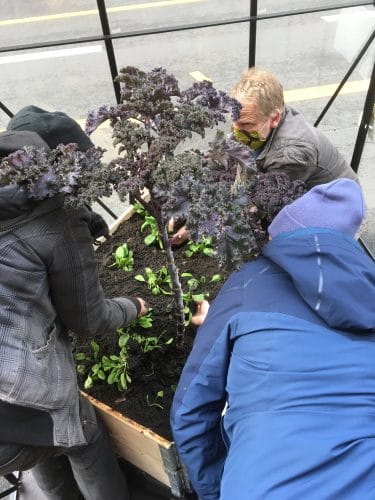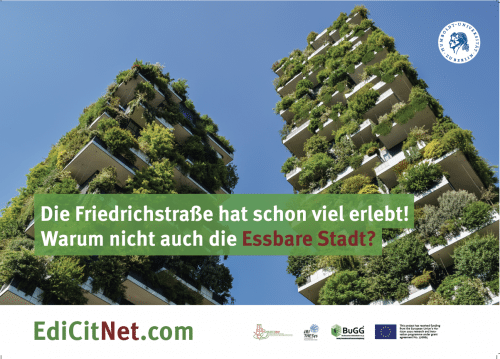EdiCitNet is presenting the Edible City of the Future on car-free Friedrichstraße in Berlin!
Friedrichstraße runs in front of our office in Berlin and is one of the most famous shopping streets in the city. Normally it is heavily trafficked, but now the city has implemented a pilot project that turns a section of the street into a strolling mile without cars. Stores and residents in this area can present themselves in so-called “showcases” (glass boxes), and well-known brands such as Rolex or Cartier show their collections and models here.
We as EdiCitNet project and resident of Friedrichstraße also take up this offer, but of course, we do not present products but the Edible City of the Future! With a raised bed, information posters about the Living Labs in Berlin and visions of the future, we invite everyone to imagine a city next to consumption and car traffic that is edible and combines social, ecological and economic factors.
Join our Network to share your visions and ideas about the Edible City of the Future! www.edicitnet.com/join-the-network/



